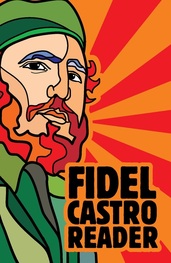The View from the South:
Commentaries on world events from the Third World perspective
A blog from the Third World perspective
I am launching a blog that will be written from the Third World perspective. It will educate and inform concerning modern history and contemporary events and issues from the vantage point of the peoples of the world that have been historically colonized. As you can see by clicking on “Who We Are,” I am a person from the North who has been encountering the movements of the Third World for more than 40 years; and I have come to appreciate the profound understanding formed by those who have been dominated and exploited, yet who persist in hope for the future of humanity.
The blog will begin with definitions and reflections of key terms: democracy, socialism, colonialism, neocolonialism, and imperialism. It will describe what is meant by the “Third World,” and it will describe the historical development of Third World movements in opposition to colonial, neocolonial, and imperialist structures of domination and in pursuit of its form of democracy and socialism. It will inform readers about the thoughts and ideas of important Third World leaders. It will make commentaries on events, countries, and regions in the news.
The blog will be like a traditional newspaper political column, but it will be adjusted in style to the norms of blogging. Thus the posts will be frequent (daily or almost daily) but relatively short (generally 250-500 words). So some themes, such as socialism, will be discussed over several posts.
The blog will offer a point of view different from the commentaries of the Left in the United States and other developed countries of the North. The US and European Left offer critiques of prevailing political-economic structures, but they often do so from a vantage point that is not sufficiently based on encounter with the movements of the Third World. Although critical of imperialism, typical leftist commentaries generally have a superficial understanding of imperialism and neocolonialism. Although they offer a critical perspective, they frame issues in a way that reflects the vantage point of the North, and thus is a perspective that in a profound sense is ethnocentric. In contrast, I will write from a perspective that is based on a foundation of sustained encounter with the peoples and movements of the Third World.
I write with the premise that intellectual work of value emerges from social movements and functions to further direct social movements. In accordance with this vision, we intellectuals of the North should seek to write in a form that is connected to social movements, that is influenced by them and in turn influences them. We sometimes do this well in relation to the feminist and ecology movements, but much less frequently in relation to Third World movements.
Thus I am seeking to contribute to a process in which the critical energy among the peoples of the North, emerging from contradictions and frustrations, can be channeled toward an informed and sustained social movement that is above all an anti-imperialist movement, emerging from a profound understanding of the various manifestations of imperialism, and is integrally tied to a political project. I believe that our task as intellectuals of the North is to contribute to the formulation of an anti-imperialist program and political project that could be offered to the people(s) of the United States, a program that seeks cooperation with the nations, peoples, and movements of the earth, based on the belief that global cooperation is necessary to save humanity, and based on the hope that, indeed, humanity can be saved. However impossible this task appears, it is our duty in the present historic moment, a moment of systemic global crisis, in which the peoples of the Third World are offering, in theory and in practice, an alternative.
I hope that the blog will be interactive. Comments and questions by readers are encouraged. Every effort will be made to respond to commentaries, so that the direction of the blog may well be influenced by commentaries of readers.
Posts on the blog will often have titles in the form questions, and the post will seek to answer the question, at least in part. So the next post will address the question, “What is the Third World?”
Commentaries on world events from the Third World perspective
A blog from the Third World perspective
I am launching a blog that will be written from the Third World perspective. It will educate and inform concerning modern history and contemporary events and issues from the vantage point of the peoples of the world that have been historically colonized. As you can see by clicking on “Who We Are,” I am a person from the North who has been encountering the movements of the Third World for more than 40 years; and I have come to appreciate the profound understanding formed by those who have been dominated and exploited, yet who persist in hope for the future of humanity.
The blog will begin with definitions and reflections of key terms: democracy, socialism, colonialism, neocolonialism, and imperialism. It will describe what is meant by the “Third World,” and it will describe the historical development of Third World movements in opposition to colonial, neocolonial, and imperialist structures of domination and in pursuit of its form of democracy and socialism. It will inform readers about the thoughts and ideas of important Third World leaders. It will make commentaries on events, countries, and regions in the news.
The blog will be like a traditional newspaper political column, but it will be adjusted in style to the norms of blogging. Thus the posts will be frequent (daily or almost daily) but relatively short (generally 250-500 words). So some themes, such as socialism, will be discussed over several posts.
The blog will offer a point of view different from the commentaries of the Left in the United States and other developed countries of the North. The US and European Left offer critiques of prevailing political-economic structures, but they often do so from a vantage point that is not sufficiently based on encounter with the movements of the Third World. Although critical of imperialism, typical leftist commentaries generally have a superficial understanding of imperialism and neocolonialism. Although they offer a critical perspective, they frame issues in a way that reflects the vantage point of the North, and thus is a perspective that in a profound sense is ethnocentric. In contrast, I will write from a perspective that is based on a foundation of sustained encounter with the peoples and movements of the Third World.
I write with the premise that intellectual work of value emerges from social movements and functions to further direct social movements. In accordance with this vision, we intellectuals of the North should seek to write in a form that is connected to social movements, that is influenced by them and in turn influences them. We sometimes do this well in relation to the feminist and ecology movements, but much less frequently in relation to Third World movements.
Thus I am seeking to contribute to a process in which the critical energy among the peoples of the North, emerging from contradictions and frustrations, can be channeled toward an informed and sustained social movement that is above all an anti-imperialist movement, emerging from a profound understanding of the various manifestations of imperialism, and is integrally tied to a political project. I believe that our task as intellectuals of the North is to contribute to the formulation of an anti-imperialist program and political project that could be offered to the people(s) of the United States, a program that seeks cooperation with the nations, peoples, and movements of the earth, based on the belief that global cooperation is necessary to save humanity, and based on the hope that, indeed, humanity can be saved. However impossible this task appears, it is our duty in the present historic moment, a moment of systemic global crisis, in which the peoples of the Third World are offering, in theory and in practice, an alternative.
I hope that the blog will be interactive. Comments and questions by readers are encouraged. Every effort will be made to respond to commentaries, so that the direction of the blog may well be influenced by commentaries of readers.
Posts on the blog will often have titles in the form questions, and the post will seek to answer the question, at least in part. So the next post will address the question, “What is the Third World?”








 RSS Feed
RSS Feed











